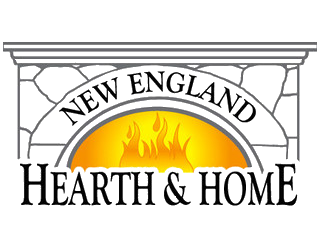During the coldest and snowiest days of winter, there is no better place to be than at home relaxing in front of a wood-burning fireplace. Besides being a source of heat, fireplaces bring another sense of comforting warmth to your home. Although starting a fire can be a quick and easy process, it is important to follow all safety precautions and guidelines. When you use the best quality and most suitable kind of wood, you can ensure you are able to create a fire of desired size and duration. Read on to learn more about the most compatible types of wood for wood-burning fireplaces.
Steps to Take Before Starting a Fire
Before lighting your fireplace, it is important to make sure that it is properly set up and ready to be safely used. To keep your wood-burning fireplace or stove running smoothly for years to come, you must practice routine maintenance and cleaning. While the fire is burning, it is essential to check that all ventilation is properly functioning to filter out any smoke or toxins. Besides setting up the fireplace itself, it is important to also prep the surrounding area by removing any objects within reach of flames or sparks. If you are unsure if your fireplace is ready to be used, it is always a good idea to consult a professional. New England Hearth & Home offers professional support for fireplace installation and repairs, as well as annual inspections. For a full list of our services, visit our website.
Choosing the Right Type of Wood for Your Fireplace or Stove
There is nothing that can destroy the relaxation of a wood-burning fireplace faster than the sudden build-up of heavy smoke or obnoxious odors. To avoid any complications, selecting the right type of wood to burn is crucial. Wood is generally categorized between hardwood and softwood, and each subsection comes with their own properties. When looking for firewood, you want to find a type that has the ability to maintain high temperatures and burn entirely at a steady pace. By burning wood with these characteristics, you can keep a hotter and more durable flame.
Seasoned Firewood
The best type of wood to use for starting a fireplace or outdoor pit Is wood that has been completely drained of all moisture. If you attempt to start a fire by using wood from a freshly cut tree, you will soon be encountered by clouds of heavy smoke. When buying firewood, you want to keep an eye out for those that have been previously seasoned. By definition, seasoned firewood is wood that has already been dried out of any remaining moisture before becoming available for purchase. After being harvested, firewood is usually placed in a hot kiln for high-speed drying to remove any remaining water. Seasoning firewood is also helpful for the environment by removing any mold, mildew, or toxic spores that could have otherwise been released into the atmosphere.
Hardwood
Hardwood is the best type of firewood to choose when looking for top quality. Woods, such as birch, hickory, oak, and ash, are a household favorite for their ability to burn evenly for an extended period of time. Although hardwoods tend to be more expensive, they show their worth in the dazzling, dancing flames they create.
Softwood
If price is your main concern, softwood is a cheaper alternative that offers a similar result. Unlike hardwoods, though, softwoods tend to burn through quicker and require more maintenance. Popular examples of softwood used for indoor lighting fireplaces include those that came from cedar, pine, spruce, fir, and poplar trees. Due to their delicate nature, these branches can be more difficult to manage and leave a messier residue.
Contact Us for Wood-Burning Fireplace or Stove Installation, Maintenance, & Inspection in Canton, MA
If you are interested in installing a wood-burning fireplace or stove in your home, but are looking for more information, fill out our contact form to receive a free estimate. At New England Hearth & Home, we pride ourselves on our ability to provide the best products and services to our customers. To receive more information, visit our website or give us a call at (781) 562-0771.
